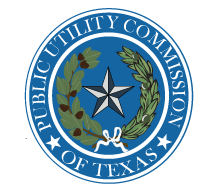By 2030, EVs could comprise as much as 15 percent of Texas vehicles.
________________________________________________

In recent years, electric industry regulators nationwide have contended with issues arising from electric vehicles. The Texas Public Utility Commission has opened a project to consider these questions — Project No. 49125 — and has sought comments from interested parties on a variety of issues.
EVs present challenges and opportunities to Texas’s entire utility framework. By potentially shifting a portion of the state’s very large energy needs arising from transportation onto the electric system and away from gasoline, the increasing usage of EVs has caused the PUC to consider what changes to our system need to be made to accommodate this technology.
The Oncor Cities Steering Committee filed comments in Project No. 49125 in August, and generally argued that the current Texas deregulated market model can accommodate increased EV usage. Specifically, the OCSC argued that EV charging stations should not be owned and operated by electric utilities (like Oncor and CenterPoint) but rather ownership should be left to competitive third parties. This would mean that difficult and risky decisions about EV charging stations — such as where to locate them and what kind to offer — would be left to the private market. In reaching this conclusion, the OCSC determined that ownership and operation of an EV charging station is not a retail sale of electricity, and, as a result, any entity could own and operate one.
The municipal coalition also argued that any distribution infrastructure associated with an EV charging station should be treated for ratemaking purposes in the same manner as distribution investments are handled by regulators now.
MORE ELECTRIC VEHICLES EXPECTED
Analysts expect a surge in electric vehicle use within just a few years, with projections of $300 billion in electric vehicle investment in EVs worldwide within a decade. By 2030, electric vehicles could comprise as much as 15 percent of all vehicles on Texas roads, according to analysts.
At this point Project No. 49125 is at an informal stage, with the PUC asking interested parties for comments, and with no rule yet proposed. OCSC will continue monitoring Project No. 49125 and file comments as appropriate. You can read the OCSC’s recent filing in Project No. 49125 and filings by other interested parties at the PUC website, at this link.
Chris Brewster, an attorney with Lloyd Gosselink, participates in ERCOT matters on behalf of municipalities.
